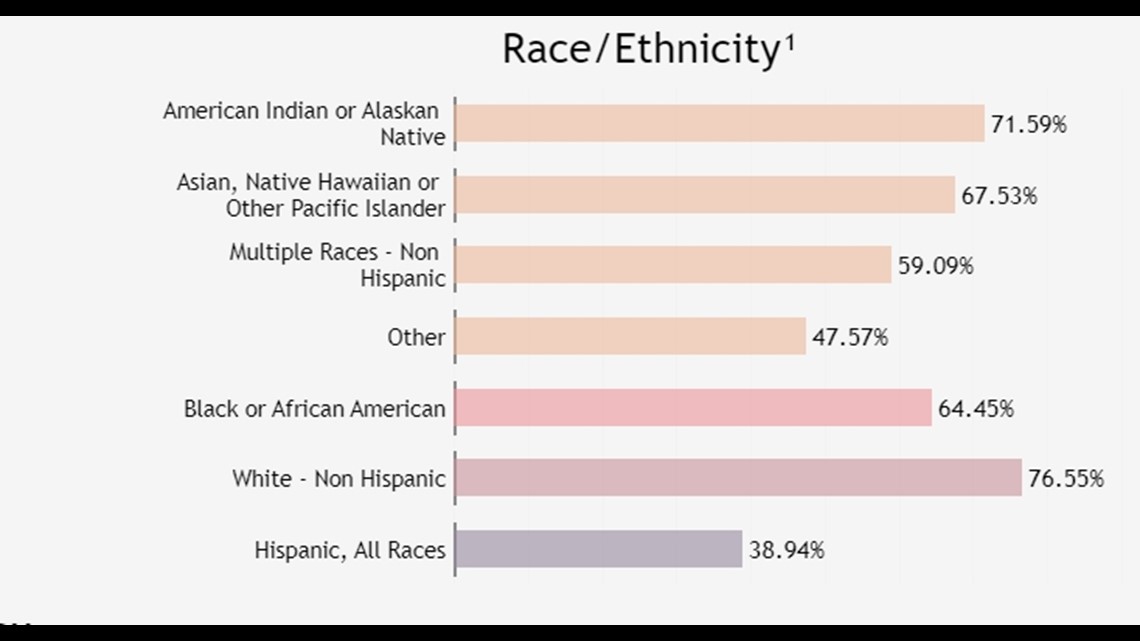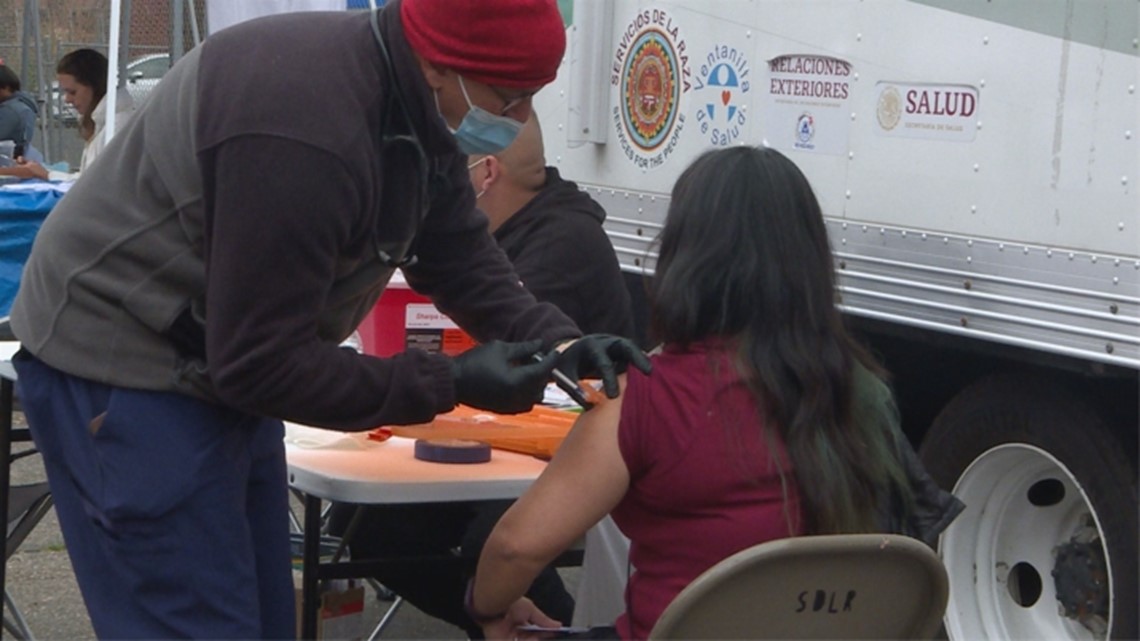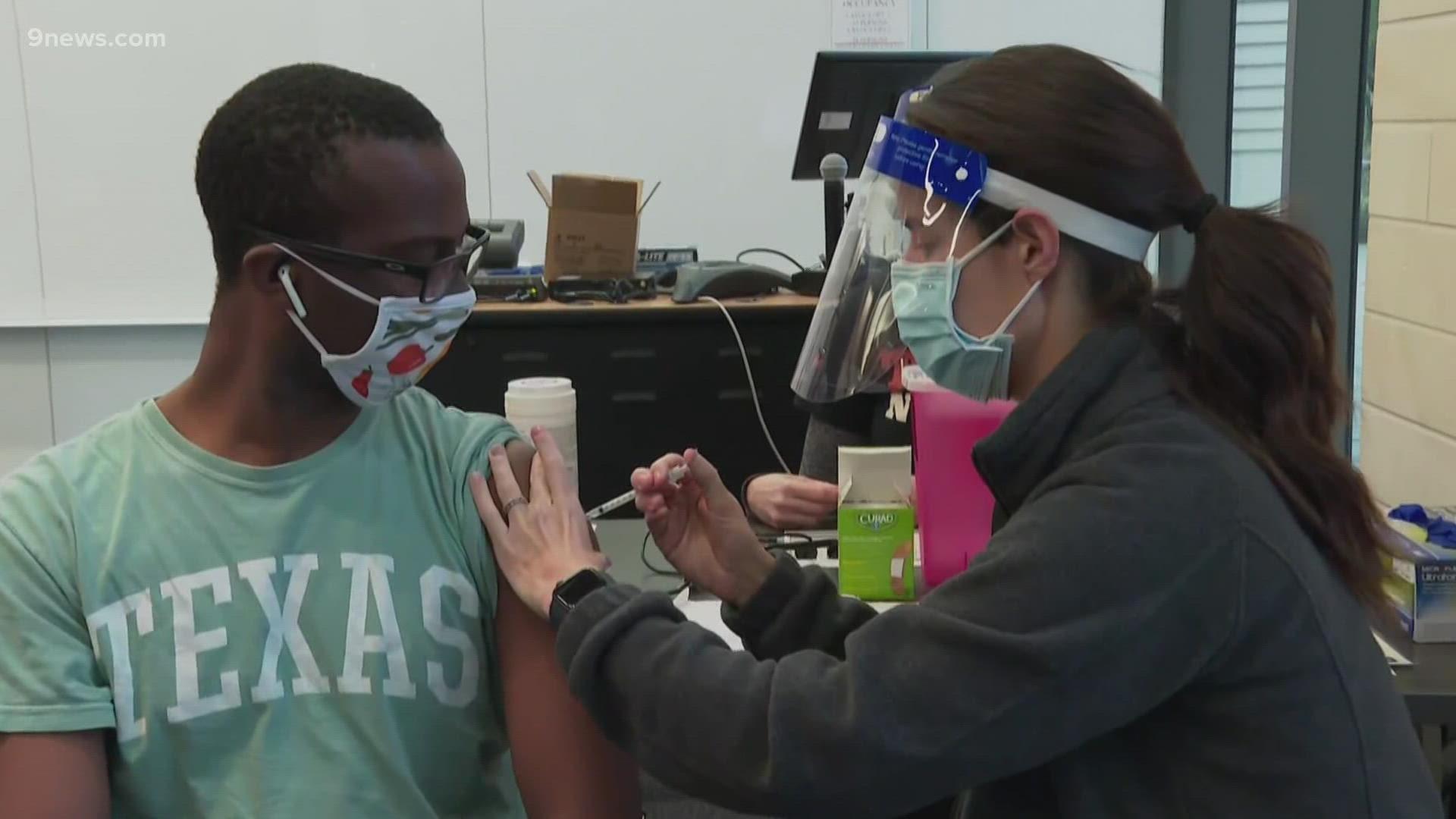DENVER — The most recent vaccine numbers on the state dashboard show that there are fewer than 1,000 people hospitalized with COVID-19 in Colorado for the first time since October.
This decrease could give the impression that the virus is on its way out, but a medical expert and a spokeswoman for the Colorado Department of Public Health and Environment (CDPHE) say that people who are not fully vaccinated are more likely to become infected and reiterated the importance of the booster shot.
In this week's segment, Dr. Ricardo González-Fisher with Servicios de la Raza weighs in on the need of a fourth dose of the COVID-19 vaccine this spring and explains 'long COVID' and its symptoms.
Vanessa Bernal with CDPHE also discusses the state's current COVID-19 numbers and how not having the booster shot has impacted the Hispanic community.
Will a fourth dose of the COVID-19 vaccine be necessary?
Answering this question is complicated, Gonzalez-Fisher said. It’s complicated because not everyone has a third dose yet.
He said that although countries like Israel are already administering a fourth shot to medical personnel and older folks, the US is still gathering evidence to provide "adequate" information about the fourth dose.
“It makes me sad not to be able to say yes or no, which is what people would like to hear," he said. "But I would like them to watch out for indications given by our health department because soon we will know what is next."
What do we know about Long COVID?
Gonzalez-Fisher said that we have a conglomerate that is now called 'post-acute sequelae of COVID-19' or "long COVID." It is used to describe the long-term symptoms that might be experienced weeks to months after primary infection with COVID-19.
According to Gonzalez-Fisher, "long COVID" is present in a fairly significant percentage of the population that has been infected.
These are the "long COVID" symptoms that he mentioned:
- respiratory symptoms that range from respiratory failure, difficulty breathing to pain when breathing
- tiredness
- inability to do certain activities because of the lack oxygen
- muscle aches
- chest pain
- digestive problems
- neurological problems
According to Gonzalez-Fisher, these symptoms are seen in up to 70% of people who had severe COVID.
"Up to 70% of people who may have sleep disorders, loss of smell, loss of taste," he added.
Gonzalez-Fisher said that it is unclear how long this "long COVID" will last so "that is why I insist that we should be vaccinated."
What is the rate of infection of those who are vaccinated with two doses compared to those who already received the booster shot?
According to Bernal, the state recently updated the COVID data dashboard to show new data that distinguishes between the infection rates of those who are vaccinated with only two doses and those who have received their third doses.
"People who have the booster shot are less likely to be reinfected," she said.
In an effort to put it into context for viewers, Bernal emphasized the significant difference in positive cases among the Hispanic community that does not have a third dose.
“In the Hispanic community, 5,460 positive cases of people with booster shots have been reported, compared to 29,264 cases among Hispanics who did not have the booster shot.“
These opposing numbers are "a clear example of the importance of the booster shot," Bernal said.
Who is eligible to receive booster shots?
"They are people 12 years of age and older who received their second dose of Pfizer at least five months ago, as well as people 18 years of age and older who received their second dose of Moderna at least five months ago," Bernal said.
If they got the Johnson & Johnson vaccine, they should get Pfizer or Moderna at least two months after they got vaccinated."
Bernal said this and more information on the virus can be found on COVID19.Colorado.gov where the information is also available in Spanish.
According to the state dashboard, a total of 74.9% of Colorado's population has received at least one dose of the COVID-19 vaccine, but the Hispanic population continues to have the lowest vaccination rate in the state sitting at 38.94%.


Servicios De La Raza, the state's largest nonprofit serving Latinos, continues to work to bring more resources and information about COVID-19 to residents of Colorado who are the most difficult to reach.
The organization offers an extended-hour clinic every Tuesday from 4 p.m. to 8 p.m. at the organization that is located at 3131 W. 14th Ave. No appointment is needed.


Servicios also offers a mobile clinic in conjunction with the Mexican Consulate in Denver known as Ventanilla de Salud. In it they have reached many regions of the state to promote vaccines.
Bernal also spoke about the state's vaccination efforts to reach Hispanic communities in Colorado, which includes a statewide campaign in Spanish that targets housing areas with a high concentration of Hispanics.
She said another important effort have been "the clinics, and also the mobile clinics, which are in the buses. Currently there are 15 buses that provide vaccines in the state."
For more information on the CDPHE mobile vaccine clinics you can visit their website here.
SUGGESTED VIDEOS: COVID-19 Vaccine

